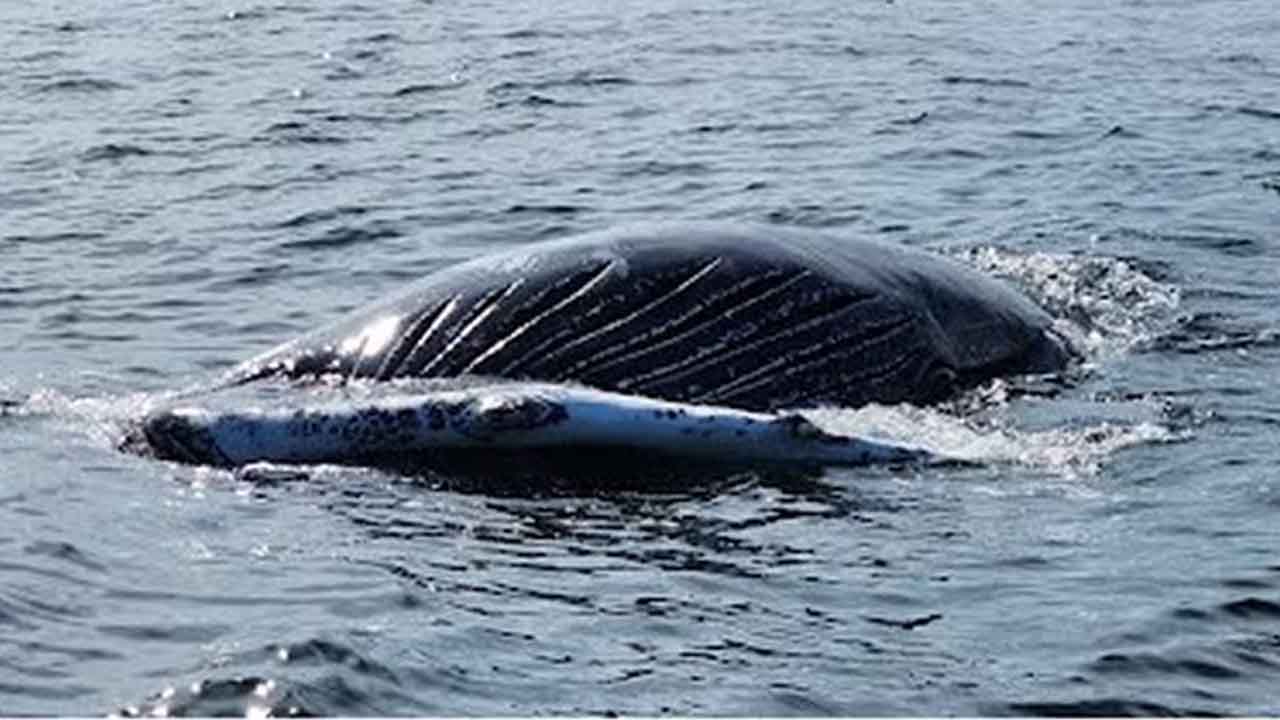Dozens of dead whales have been washing up at the New Jersey shore and off the coast since December 22, but the New Jersey Department of Environmental Protection (DEP) says it has nothing to do with sonar mapping.
Politicians up and down the Jersey Shore have been claiming the increase in whale deaths since December is linked to activities connected to the flailng 0rsted offshore wind farm. Officials claim it’s not, citing a longterm trend in whale deaths as the cause, even though the most recent mass death event shadows the past ten years of data on record by the federal government.
According to a statement by the agency, the DEP and NOAA Fisheries have been closely monitoring an unusual humpback whale mortality event on the Atlantic coast since 2016.
In light of rising concerns over the potential impact of offshore wind energy development on marine life, both agencies issued statements clarifying their positions and ongoing monitoring efforts.
The DEP began receiving concerns from stakeholders in January this year, suggesting that offshore wind energy infrastructure off New Jersey’s coast might be contributing to whale mortality.
All such survey activities have been permitted by NOAA Fisheries and the Bureau of Ocean Energy Management (BOEM) and are deemed safe for marine mammals.
As of August, no offshore wind-related construction activities have taken place in waters off New Jersey’s coast. DEP maintains there is no credible evidence linking offshore wind activities to whale deaths.
The agency will continue its monitoring efforts.
In their communications, DEP expressed concern about the longer-term issue of rising ocean temperatures due to human-caused climate change, largely due to fossil fuel consumption. Such changes may be affecting marine mammals, including humpback whales, by altering their habitats, food sources, and migration patterns.
The DEP has been proactive in conserving natural resources, including marine environments. It administers New Jersey’s Coastal Zone Management Program, regulates activities in state waters, and coordinates environmental reviews with federal agencies. DEP expects all regulated entities, such as offshore wind project developers, to assess environmental impacts responsibly.
The Offshore Wind Research & Monitoring Initiative (RMI), a collaboration between DEP and the Board of Public Utilities (BPU), has allocated $8.5 million for scientific research aimed at the safe development of offshore wind energy. Atlantic Shores Offshore Wind, LLC, and Ocean Wind II, LLC, have committed about $26 million to fund research and ecological monitoring of environmental impacts, including those affecting marine wildlife such as whales.

